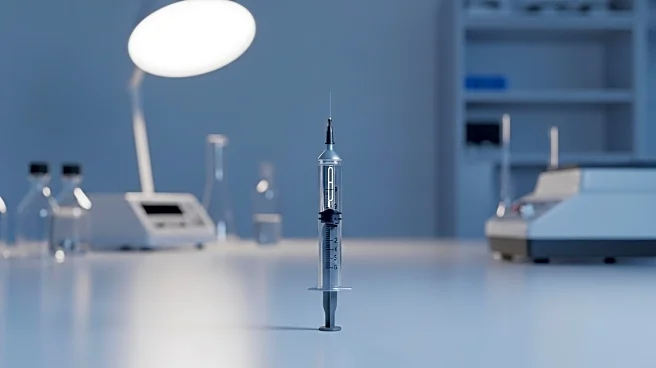What's Happening?
Johnson & Johnson has decided to halt the development of nipocalimab in combination with anti-TNFα therapy for rheumatoid arthritis (RA) following the Phase 2a DAISY trial's failure to demonstrate sufficient added benefit over anti-TNFα monotherapy. Despite this setback, the company is redirecting resources to focus on rare autoimmune diseases where nipocalimab's mechanism offers a differentiated approach. Nipocalimab is already approved for generalized myasthenia gravis in the U.S. and is being explored for other conditions such as hemolytic disease of the fetus and newborn.
Why It's Important?
The discontinuation of nipocalimab's RA program reflects the challenges in biopharma R&D, particularly in competitive markets like RA. However, Johnson & Johnson's strategic shift towards rare diseases highlights its focus on niche markets with high unmet medical needs. This approach could lead to significant advancements in treatment options for rare autoimmune conditions, potentially improving patient outcomes and expanding the company's market presence. The success of TREMFYA in psoriatic arthritis further strengthens Johnson & Johnson's position in rheumatology.
What's Next?
Johnson & Johnson will continue to explore nipocalimab's potential in rare autoimmune diseases, leveraging its differentiated mechanism to target pathogenic autoantibodies. The company is also advancing its broader rheumatology portfolio, including TREMFYA, which has shown promising results in psoriatic arthritis. Strategic acquisitions and ongoing trials in hematology and immunology will support Johnson & Johnson's long-term growth and innovation in the biopharma sector.











